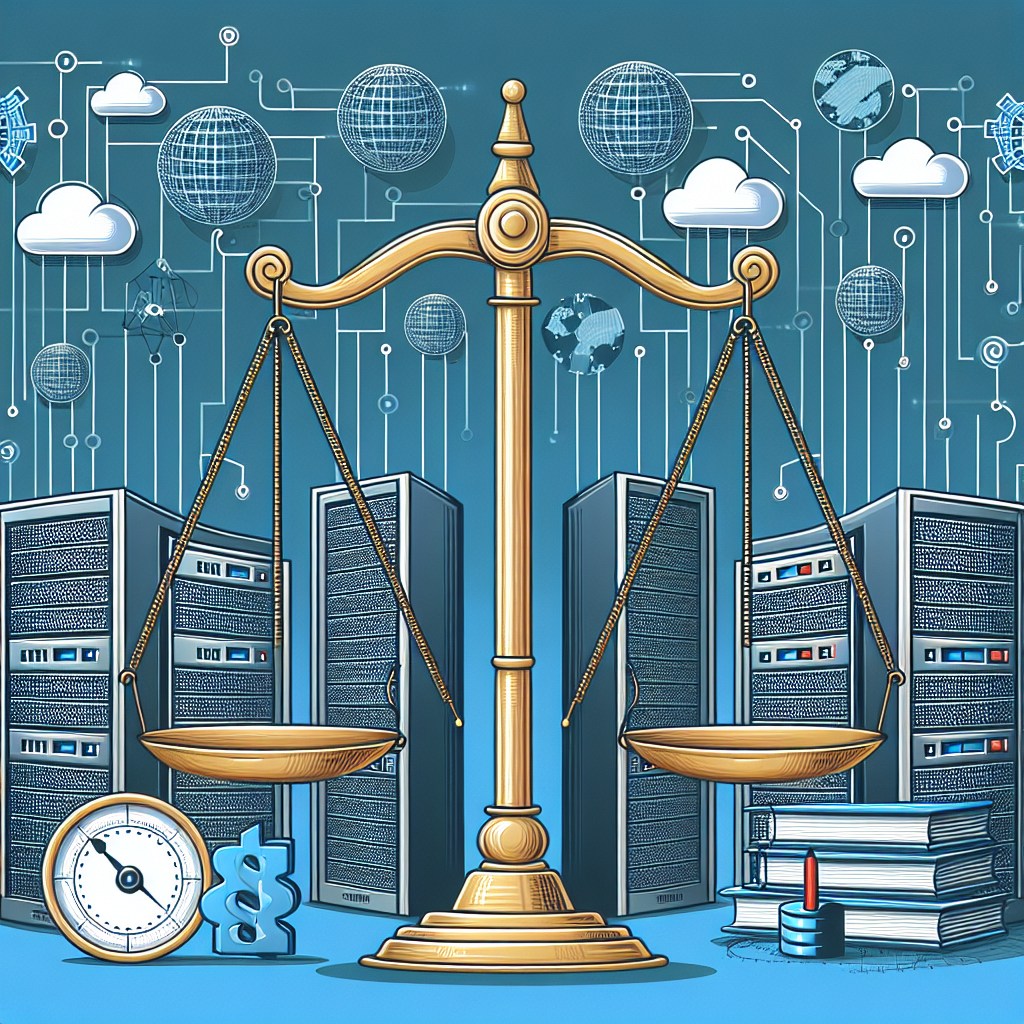Your cart is currently empty!
Tag: Age

The Importance of Data Center Compliance in a Digital Age
In today’s digital age, data centers play a crucial role in storing and processing vast amounts of information for businesses and organizations. With the increasing reliance on data centers to manage sensitive data, ensuring compliance with regulations and standards has become more important than ever.Data center compliance refers to the practice of adhering to regulations, laws, and industry standards related to the collection, storage, and processing of data. Compliance measures are put in place to protect sensitive information and ensure that data is handled in a secure and ethical manner.
One of the primary reasons why data center compliance is so important is the increasing threat of data breaches and cyberattacks. As data centers store large amounts of valuable information, they are prime targets for hackers looking to steal sensitive data. By implementing strict compliance measures, data centers can reduce the risk of security breaches and safeguard their data against unauthorized access.
Compliance with regulations also helps to build trust with customers and stakeholders. In an age where data privacy is a major concern, businesses that can demonstrate compliance with regulations such as the General Data Protection Regulation (GDPR) or the Health Insurance Portability and Accountability Act (HIPAA) are more likely to attract and retain customers who value their privacy.
Furthermore, failure to comply with data center regulations can result in significant financial penalties and reputational damage for organizations. Non-compliance can lead to fines, legal action, and a loss of trust from customers and partners. By prioritizing compliance, organizations can avoid these costly consequences and protect their reputation in the long run.
In addition to regulatory compliance, data center compliance also encompasses industry standards such as ISO 27001, which sets out best practices for information security management systems. By adhering to these standards, data centers can demonstrate their commitment to maintaining high levels of security and data integrity.
Overall, data center compliance is essential in today’s digital age to protect sensitive information, maintain trust with customers, and avoid costly penalties. By implementing robust compliance measures and staying up to date with regulations and standards, data centers can ensure the security and integrity of their data and build a strong foundation for success in the digital era.

The Importance of Data Center Databases in the Digital Age
In today’s digital age, data centers play a crucial role in storing and managing vast amounts of information. One of the key components of a data center is the database, which is essential for organizing and accessing data efficiently. In this article, we will discuss the importance of data center databases in the digital age.Data center databases are used to store and retrieve information in a structured manner. They provide a centralized location for storing data, making it easier to manage and access. Databases help organizations store and organize large amounts of data, such as customer information, financial records, and inventory data. Without databases, organizations would struggle to manage and analyze their data effectively.
In the digital age, data has become one of the most valuable assets for businesses. Companies rely on data to make informed decisions, improve customer experiences, and drive growth. Data center databases play a critical role in enabling organizations to store, manage, and analyze data effectively. By centralizing data in a database, organizations can ensure data consistency, integrity, and security.
Data center databases also play a crucial role in facilitating data analytics and business intelligence. By analyzing data stored in databases, organizations can gain valuable insights that help them make informed decisions. Databases enable organizations to run complex queries, generate reports, and perform data analysis in real-time. This ability to access and analyze data quickly and efficiently is essential for staying competitive in the digital age.
Furthermore, data center databases are essential for ensuring data security and compliance. Databases provide robust security features, such as encryption, access controls, and auditing capabilities, to protect sensitive data from unauthorized access. Compliance regulations, such as GDPR and HIPAA, require organizations to securely store and manage data. Data center databases help organizations meet these compliance requirements and avoid costly penalties.
In conclusion, data center databases are essential for organizations in the digital age. They provide a centralized location for storing and managing data, enabling organizations to make informed decisions, improve customer experiences, and drive growth. Databases also play a crucial role in facilitating data analytics, ensuring data security, and compliance. As organizations continue to generate and collect vast amounts of data, the importance of data center databases will only continue to grow. Organizations that invest in robust database solutions will be better positioned to leverage data effectively and stay competitive in the digital age.

The Importance of Data Center Network Infrastructure in the Digital Age
In today’s digital age, data centers play a crucial role in storing, processing, and managing vast amounts of data. With the increasing reliance on technology and the rise of big data, the need for robust and reliable data center network infrastructure has never been more important.Data center network infrastructure refers to the physical and virtual components that enable communication and data transfer within a data center. This includes routers, switches, servers, storage devices, and cables, as well as software-defined networking (SDN) and virtualization technologies.
One of the key reasons why data center network infrastructure is so important is its impact on the performance and reliability of the data center. A well-designed and optimized network infrastructure can ensure high-speed data transfer, low latency, and minimal downtime, which are critical for meeting the demands of modern digital applications and services.
In addition, a strong network infrastructure is essential for ensuring data security and compliance with data protection regulations. By implementing security measures such as firewalls, encryption, and access controls, data center operators can protect sensitive data from cyber threats and unauthorized access.
Furthermore, data center network infrastructure plays a crucial role in enabling scalability and flexibility. As data volumes continue to grow exponentially, data center operators need to be able to scale their infrastructure quickly and efficiently to meet the increasing demand for storage and processing capacity. By leveraging technologies such as cloud computing and SDN, organizations can adapt their network infrastructure to changing business needs and market conditions.
Another important aspect of data center network infrastructure is its impact on energy efficiency and sustainability. Data centers are known for their high energy consumption, and optimizing network infrastructure can help reduce power consumption and carbon emissions. By consolidating servers, optimizing cooling systems, and implementing energy-efficient networking technologies, data center operators can minimize their environmental footprint and reduce operational costs.
In conclusion, data center network infrastructure is a critical component of modern digital infrastructure. By investing in robust and reliable network infrastructure, organizations can ensure high performance, data security, scalability, and energy efficiency in their data centers. As the digital age continues to evolve, the importance of data center network infrastructure will only continue to grow, making it essential for organizations to prioritize and invest in this critical technology.
